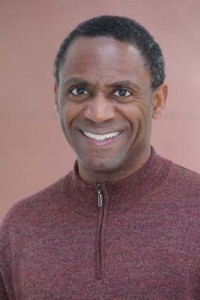Ralph C. Aldredge III, Ph.D.
- Professor, Mechanical and Aerospace Engineering
- Analytical, computational and experimental studies of turbulent flame propagation and combustion instabilities
- Development of computational models and algorithms for simulation of reactive-flow dynamics
- Biological-fluid dynamics
Biography
Ralph C. Aldredge, a professor in the UC Davis Department of Mechanical and Aerospace Engineering, gravitated toward his field because he had always enjoyed tinkering as a kid.
In 2000, one of his primary research interests — analytical, computational and experimental studies of turbulent flame propagation and combustion instabilities — came to the attention of NASA. He received one of two grants, out of 28 given nationwide, awarded to the UC Davis College of Engineering that year. The four-year grant in the amount of $395,000 allowed him to research flame propagation in low-intensity turbulence under microgravity, and to study combustible fuel ratios in order to determine the best formula for combustion in space. Although NASA’s involvement focused on the variables related to combustion in space, his work also had implications for the design of car engines, jet engines and a new technology dubbed pulse-detonation engines.
Over time, his research interests have expanded to include the development of computational models and algorithms for the simulation of reactive-flow dynamics, along with biological-fluid dynamics, biomedical heat transfer and tissue mechanics.
Given his interest in motivating young minds, it’s no surprise that he’s a mentor in the federally funded McNair Post-Baccalaureate Achievement Program, which is dedicated to increasing the ranks of under-represented groups in graduate study. Each year, the McNair program mentors help a select number of promising scholars with mentoring and fellowships to improve their chances of being admitted to Ph.D. programs nationwide.
He is also a faculty advisor for the UC Davis chapter of the Black Engineers Association, and is one of the faculty members in the UC Davis Forensic Science Graduate Program.
He is a registered Professional Engineer with the State of California (registration No. M 029244)
EME 165 Heat Transfer (4)
Lecture—3 hours; laboratory—3 hours. Prerequisite: grade of C- or better in Mechanical Engineering 5 or Engineering 6, Engineering 103, and 105. Restricted to Mechanical Engineering, Aeronautical Science and Engineering, Mechanical Engineering/Materials Science Engineering, and Biological Systems Engineering majors. Conduction, convection, and radiation heat transfer. Computational modeling of heat transfer in engineering. Applications to engineering equipment with the use of digital computers.
MAE 210A Advanced Fluid Mechanics and Heat Transfer (4)
Lecture—3 hours; discussion—1 hour. Prerequisite: Engineering 103, 105 and Mechanical Engineering 165. Development of differential equations governing continuity, momentum and energy transfer. Solutions in laminar flow for exact cases, low and high Reynolds numbers and lubrication theory. Dynamics of inviscid flow.
MAE 210B Advanced Fluid Mechanics and Heat Transfer (4)
Lecture—3 hours; discussion—1 hour. Prerequisite: course 210A. Study of stability and transition to turbulence. Introduction to the physics of turbulence. Modeling of turbulence for numerical determination of momentum and heat transfer.
MAE 212 Biomedical Heat and Mass Transport Processes (4)
Lecture—3 hours; discussion—1 hour. Prerequisite: Mechanical Engineering 165, Biological Systems Engineering 125, Chemical Engineering 153 or the equivalent. Application of principles of heat and mass transfer to biomedical systems related to heat exchange between the biomedical system and its environment, mass transfer across cell membranes and the design and analysis of artificial human organs.
MAE 213 Advanced Turbulence Modeling (4)
Lecture—4 hours. Prerequisite: course 210B. Methods of analyzing turbulence; kinematics and dynamics of homogeneous turbulence; Reynolds stress and heat-flux equations; second order closures and their simplification; numerical methods; application to boundary layer-type flows; two-dimensional and three-dimensional hydraulic and environmental flows.
MAE 217 Combustion (4)
Lecture—3 hours; discussion—1 hour. Prerequisite: Engineering 103 and 105. Review of chemical thermodynamics and chemical kinetics. Discussions of reacting flows, their governing equations and transport phenomena; detonations; laminar flame structure and turbulent combustion.
Thank you for your interest in the UC Davis Institute of Transportation Studies. Subscribe today to keep up with the latest ITS news and happenings.

